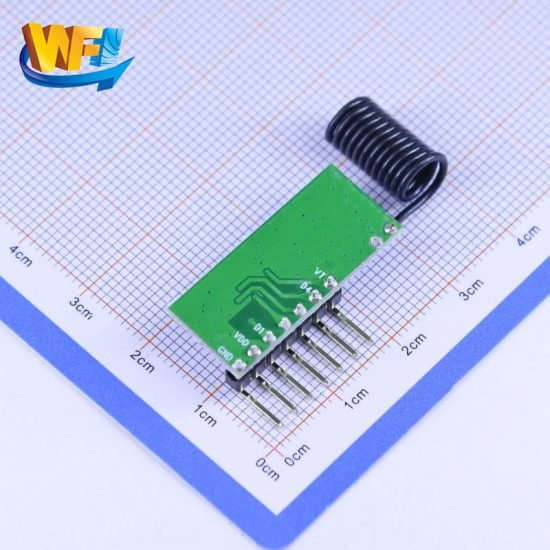In modern electronic equipment, radio frequency (RF) modules are the core components that enable wireless communication. The RF module environment refers to the various external conditions and factors that affect the performance and reliability of these modules. Understanding and optimizing the RF module environment is critical to improving the quality and stability of wireless communications. In this article, we will discuss several key aspects of the RF module environment in detail.

Table des matières
RF Module Frequency Range
The frequency range in which an RF module operates determines its application scenario. Common frequency ranges include 315, 433 MHz (for industrial, home and medical applications), etc. Different frequency ranges correspond to different regulatory requirements and applications. Different frequency ranges correspond to different regulatory requirements and application areas. For example, the 433 MHz band is widely used for wireless reception of smart home appliances and road gates due to its higher penetration and lower interference.
RF Module Power
The RF modules transmit power and receive sensitivity are important factors that affect the range and quality of communication. Higher transmit power can increase the range, but it can also lead to higher power consumption and interference. Therefore, a balance between power and performance needs to be found. In addition, countries have strict limits on the transmit power of RF modules to avoid interference with other devices.
RF Module Antenna Design
Antenna is an important component of RF module, and its design directly affects the signal transmission and reception. Different applications require different types of antenna designs, such as omni-directional antennas, directional antennas, etc. The installation location, orientation and material selection of antennas will also significantly affect the communication quality. The antennas installation position, orientation and material selection will also significantly affect the communication quality. Therefore, the optimization of the antenna is crucial when designing RF modules.
RF Module Environmental Interference
RF module performance can be affected by other electronic devices in the environment, electromagnetic interference (EMI), and physical obstacles. For example, metal objects and walls may block or reflect wireless signals, resulting in communication interruptions. To minimize interference, shielding techniques are often used and appropriate operating frequency bands are selected.
Temperature and Humidity
Different temperature and humidity conditions affect the operational stability of RF modules. In high temperature, high humidity or low temperature environments, the performance of the module may be degraded. Therefore, in real-world applications, RF modules need to be subjected to rigorous environmental testing to ensure stable operation under various extreme conditions.
Power Requirements
RF module power requirements include voltage, current and noise levels. A stable power supply is critical to the performance and life of the module. An unstable or noisy power supply may result in unstable communication signals or module damage.
Protocols and Standards
RF modules are typically required to follow specific communication protocols and industry standards such as Wi-Fi, Bluetooth, Zigbee, etc. These protocols and standards define the method of data transmission, frequency band usage, and compatibility requirements. Following these standards ensures interoperability and communication quality between different devices.
Conformité réglementaire
Different countries and regions have different regulatory requirements for wireless communication equipment. RF modules need to pass the corresponding certification and testing, such as FCC certification (U.S.), CE certification (Europe), SRRC certification (China), etc. These certifications ensure that the RF modules will not cause interference with other equipment during use and comply with local laws and regulations. These certifications ensure that the RF module will not cause interference to other equipment during use and comply with local laws and regulations.

